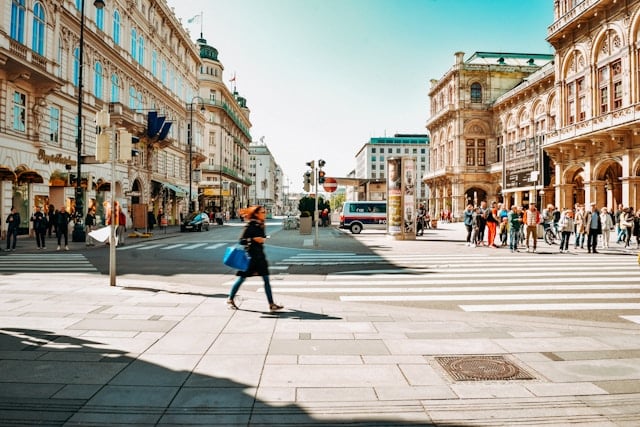There’s plenty of reasons why someone might move from the UK to Austria post-Brexit. For Ladi Sonaike, his heart pulled him to the Alpine republic when he met an Austrian woman – moving from London to the small town of Söll near Kufstein (population 3,500) a couple years ago.
As much as the reason made his move worth it, the bureaucracy of doing so was no picnic in an Alpine meadow.
“It was the nightmare of nightmares,” Ladi tells The Local Austria. “It’s straightforward, but arduous.”
Ladi’s biggest piece of advice for people making the move is to know exactly what documents you need – and to make sure you have them in order – whether for moving yourself or for moving your stuff.
READ ALSO: How to post packages between Austria and the UK post-Brexit
Moving your stuff – what you need to know about customs
If you’re moving just a few small things that you can carry in your luggage on a plane or train, this is a pretty simple step where you don’t need to do much.
If you’re hiring a moving company though to move furniture or a lot of personal effects, you’re going to need to fill out some paperwork.
What you need depends on if you’re moving your stuff within 12 months of officially taking up your main residence in Austria – which you can easily prove with your Meldezettel or registration document. This form will say exactly when you became a resident.
IN DETAIL: How to get your Meldezettel in Austria
Although you need a form either way, Ladi advises people to try and move your belongings to Austria within 12 months of becoming a resident rather than waiting – as you can avoid import duties.
For moving your stuff within 12 months of taking up residence in Austria, you can fill out form ZBefr 2a, which will allow you to take your stuff to Austria as personal effects – and therefore not pay import duty.
If you, like Ladi, had to move some things more than 12 months after taking up residence in Austria, you’re going to need to fill out form ZBefr 2 – and you’ll probably have to pay some duty.
Both of these forms weren’t needed while the UK was part of the EU – and they’ve created difficulties with finding moving companies to take on UK-EU moves.
“Most Austrian companies that I called do not want the job,” says Ladi. He says that was also true of most UK companies – although some specialise in jobs like this, and will thus know exactly what you need to do and can guide you through the forms.

You’ll need to make an inventory and estimate a value for your stuff, which can bring up some complicated questions.
“How much is my used T-shirt worth really? How much is my nine-year old sofa worth?” says Ladi – who advises you to discuss this with your moving company if you have questions. He recommends picking a company that specialises in UK-EU moves – companies that are often British.
For other paperwork, you may need proof that you’ve lived in the UK for at least a year prior to moving to Austria – which you can prove through rental or work contracts if necessary. You also need some evidence of where you’re staying in Austria – whether through a rental or purchase contract, or even an invite letter if you’re staying with friends or your significant other.
If you’re minimalist, you can of course, just buy what you need again when you get to Austria. But, some things might be worth it. “I’ve got 300 records. They have sentimental value,” Ladi says. “I can’t buy those again.”
Some things though – aren’t worth the hassle.
“Forget moving alcohol,” says Ladi. “Just don’t bother.”
READ ALSO: How much does it cost to post items within Austria and abroad?
Moving yourself
To move to Austria, you’ll obviously need the right visa and/or residence permit – depending on your nationality. British nationals can, of course, visit for up to three months visa-free before you have to apply for a residence permit.
There’s plenty of articles on The Local Austria to help with this process, and you can check out our dedicated section for more.
However, Ladi says he was somewhat surprised by a few requirements, including the need for passport photos not to be more than six months old and to be stamped as such. Then came his residency permit appointment.
“Everything was conducted in German, but then they said ‘we need proof that you can speak German,’” he says – before presenting them with his language test results.
Ultimately, Ladi says his main takeaway message is straightforward – whether for moving your stuff or yourself.
“You either have the paper or you don’t. There’s no way around that,” he says.
READ ALSO: Residency permits in Austria
Despite everything, Ladi says it’s all been worth it.
“You’ve got clean air. You’ve got fresh air. You’ve got beautiful vistas,” he says. “It’s a quiet and peaceful way of life that I wanted post-London. I love London. I’ve lived there all my life. But after a while, I was done with London. I was looking for a complete change.”



 Please whitelist us to continue reading.
Please whitelist us to continue reading.
Member comments